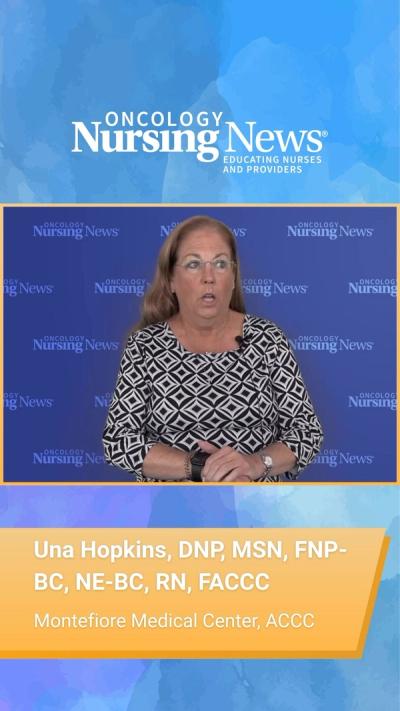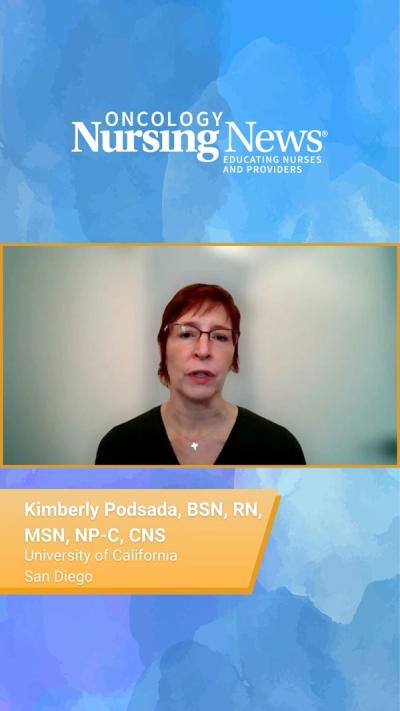
Conference Coverage
Latest Content

Case Study: Breast Oncology APPs Across the Cancer Continuum

Age, Parental Status Factors in Fertility Decisions in Premenopausal Breast Cancer

ADC Receives Orphan Drug Designation in Small Cell Lung Cancer

Being a “Last Responder” to Patients With Cancer With Melinda Mayorga

Cancer Care and Education in the Era of Precision Oncology

Shorts







Podcasts
Videos
All News

Subcutaneous mosunetuzumab wins FDA accelerated approval in patients with R/R follicular lymphoma following 2 or more lines of systemic therapy.

Breast cancer survivors improved cognitive outcomes with both real and sham acupuncture, but real acupuncture showed greater gains.

As CAR T-cell therapy expands to solid tumors, oncology nurses play a key role in monitoring, educating, and supporting patients.

Giredestrant displayed a safety profile consistent with prior findings and had a lower rate of discontinuation compared with standard endocrine therapy.

Frontline maintenance tucatinib plus trastuzumab and pertuzumab increased progression-free survival in patient with HER2-positive metastatic breast cancer.

The FDA has approved the use of subcutaneous amivantamab and hyaluronidase-lpuj across all amivantamab indications.

The FDA has greenlit treatment with rucaparib for previously treated patients with BRCA-mutated metastatic castration-resistant prostate cancer.

A mobile health intervention was linked with an increase in general and cancer-specific QOL in adolescent and young adult breast cancer survivors.

Hormone replacement therapy was associated with a lower risk of developing BRCA1– or BRCA2–mutated breast cancer among those already at higher risk.

The treatment combination of T-DXd and pertuzumab was granted FDA approval in the first-line for unresectable or metastatic HER2-positive breast cancer.

The FDA has approved niraparib and abiraterone acetate with prednisone for the treatment of patients with BRCA2-mutated metastatic hormone-sensitive prostate cancer.

Subcutaneous daratumumab plus teclistamab improved survival outcomes in patients with R/R multiple myeloma vs standard daratumumab-based regimens.

Preoperative radiation and pembrolizumab improved T-cell infiltration in patients with higher-risk, HR-positive, HER2-negative, early-stage breast cancer.

Phase 2 data demonstrated similar pharmacokinetic profiles between subcutaneous azacitidine and an oral combination of azacitidine and cedazuridine.

The use of sacituzumab govitecan to treat HR+/HER2– metastatic breast cancer did not reach its primary end point of progression-free survival.









